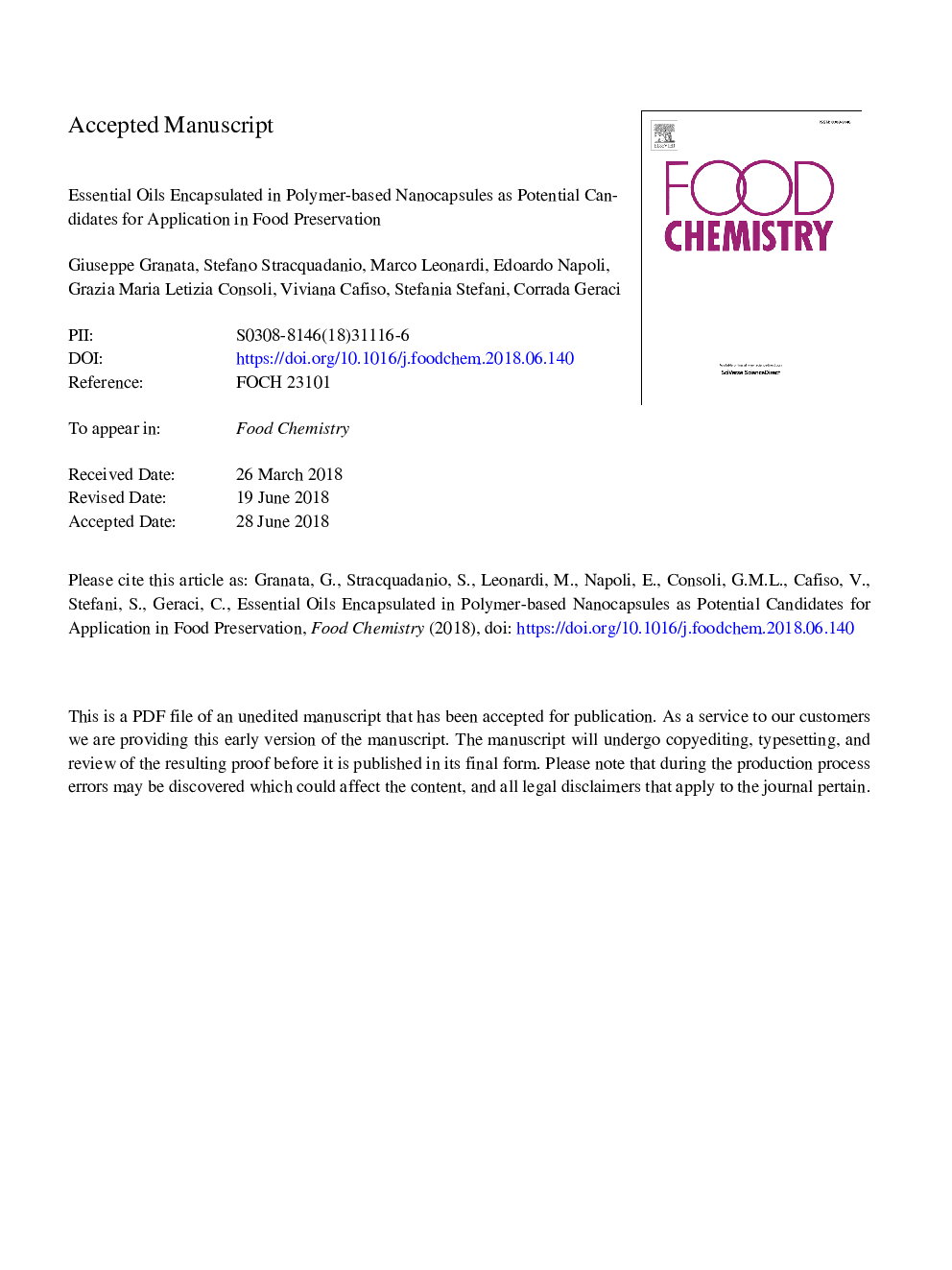| Article ID | Journal | Published Year | Pages | File Type |
|---|---|---|---|---|
| 7584215 | Food Chemistry | 2018 | 31 Pages |
Abstract
The aim of this work is the encapsulation of essential oils (EOs) in polymeric nanocapsules (NCs), in order to enhance their antimicrobial activity against food-borne pathogens. Thymus capitatus and Origanum vulgare EOs were selected for their different chemical composition, carvacrol (73%) and thymol (44%) being the major constituent, respectively. Polymeric poly(É-caprolactone) (PCL) nanocapsules loaded with EOs were prepared by a nanoprecipitation method. The EO-NCs showed monomodal distribution with diameter size 171 and 175â¯nm, high efficiency of encapsulation and stability with high retention of EOs at both 4â¯Â°C and 40â¯Â°C, for a period of at least 30â¯days. The antimicrobial activity of EO-NCs against food-borne pathogens was higher than that of the corresponding pure essential oils and the NCs loaded with Thymus capitatus EO were the most active. Interestingly EO-NCs showed a bactericidal activity even at the minimum inhibitory concentrations (MICs). It makes them appealing as natural food preservatives.
Related Topics
Physical Sciences and Engineering
Chemistry
Analytical Chemistry
Authors
Giuseppe Granata, Stefano Stracquadanio, Marco Leonardi, Edoardo Napoli, Grazia Maria Letizia Consoli, Viviana Cafiso, Stefania Stefani, Corrada Geraci,
